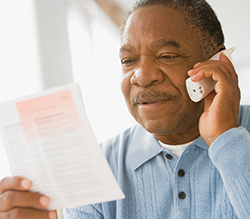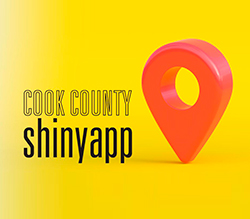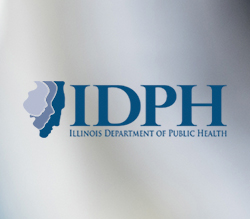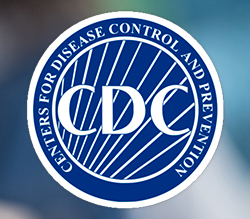
Frequently Asked Questions
Businesses and organizations
One of my employees has tested positive for COVID-19, what should I do?
- Encourage the employee to follow recommendations from their doctor and health department about isolation at home.
- Ask employee about the first day of their symptoms, if they had symptoms at work, and any individuals at work they had close contact with during the time they had symptoms (within 6 feet for more than 10 minutes).
- Contacts of contacts have no restrictions. Facilities should not close because contacts of contacts of cases visited that location.
- Perform cleaning and disinfection after person with COVID-19 was in the facility. Details of the type of cleaning and disinfection varies depending on the kind of workplace or business.
- For community, non-healthcare facilities (e.g., schools, institutions of higher education, offices, daycare centers, businesses, community centers) close off the area used by the sick person, wait 24 hours or as long as possible before you clean or disinfect. Please see additional detailed cleaning recommendations at the CDC’s website.
- Healthcare facilities and places where people live overnight have different cleaning recommendations.
- The Illinois Department of Public Health states that if an employee is confirmed to have COVID-19, employers should inform fellow employees of their possible exposure to COVID-19 in the workplace but maintain confidentiality as required by federal law.
- If needed, essential critical infrastructure workers at critical infrastructure agencies and businesses may continue work following potential exposure to COVID-19 if they remain asymptomatic and additional precautions are implemented.
For more information for businesses, please see:
https://www.cdc.gov/coronavirus/2019-ncov/community/guidance-business-response.html
I’m worried about my business, where can I get help?
Cook County President Toni Preckwinkle has announced several initiatives to assist business:
First, under a business relief package on March 26. Under the relief package, due dates for Home Rule Taxes will be pushed back as will numerous fines and fees under the jurisdictions of County agencies. The relief measures have the potential to free up $35 million for Cook County businesses.
Second, President Preckwinkle has also announced a Community Recovery Initiative to assist small businesses, nonprofits and independent contractors struggling to make ends meet due to COVID-19. There are two components – a Cook County Community Recovery Fund, and the Cook County Technical Assistance Network. For more information, please see: https://www.cookcountyil.gov/recovery .
For additional resources from the County, state, and federal governments, the Illinois Department of Commerce and Economic Opportunity has this one-pager .
Contact tracing
What is contact tracing and how will it help reopen the country?
WBEZ recently published a story that answers this question. Read it here .
How long has CCDPH been contact tracing?
Public health routinely does contact tracing when investigating disease outbreaks. CCDPH has been contact tracing for COVID-19, since it first appeared in our jurisdiction on Jan. 24, as it has been an essential part of controlling the epidemic. We have had to prioritize who we investigate when the number numbers became overwhelming. Cases from congregate settings are being prioritized. Congregate settings include but are not limited to correctional facilities, nursing home, long-term care, seniorliving. As the numbers decrease we will gradually be able to resume contact tracing.
How is contact tracing done and in conjunction with the CDC, IDPH and Chicago?
COVID-19 tests that are positive are reported by the laboratory and ordering physician/hospital into a IDPH state-wide tracking system. CCDPH staff access this database to identify new cases that reside in CCDPH’s jurisdiction. A case investigator speaks with the hospital (if patient was admitted to hospital) and to the positive case (or their family contact, if the case is deceased or unable to speak) to collect details such as current symptoms, exposure history, work history, and household contacts, and their current status (home, hospital, ICU, deceased). Each investigator makes multiple attempts to reach the case or family or hospital staff. CCDPH and CDPH conduct investigations separately but collect the same information, which all goes to a statewide system that IDPH uses to track cases statewide.
Is contact tracing being conducted for each case identified in the county?
How many CCDPH employees are currently conducting contact tracing?
Are more workers needed to truly get a handle on the scope of the spread? If so, roughly how many? Could epidemiologists, other health care workers or members of the public be tapped to help?
Our current team of investigators includes CCDPH staff (including staff with experience in case investigations for other diseases) and physicians from Cook County Health.
Financial and other resources for families
Please see below for common questions. A full list of resources is available at this page on our website.
I’ve lost my job due to COVID-19, where can I get help?
Individuals who have been temporarily laid off due to COVID-19 may be eligible for unemployment benefits as long as they are able, available, and actively seeking work. Under recently adopted emergency rules, the individual does not have to register with the employment service, and is instead considered to be actively seeking work as long as they are prepared to return to his or her job as soon as the employer re-opens. To ask about state unemployment insurance call IDES: 1-800-244-5631. For FAQs about unemployment assistance, please visit: https://coronavirus.illinois.gov/s/unemployment-faqs .
The Chicago-Cook Workforce Partnership has a list of new jobs: https://chicookworks.org/worker-employer-resources-during-covid-19-pandemic-ui-and-more
You can apply for SNAP, cash and medical benefits online by going to abe.illinois.gov or by calling 1-800-843-6154.
Which schools are providing meals for children?
School districts throughout Cook County suburbs are providing meals to families in need. Find the details here: www.bit.ly/CookCountyMeals .
Where can I get utility assistance?
The Low Income Home Energy Assistance Program (LIHEAP) helps eligible low-income households pay for home energy services. Utility Bill Assistance: https://www2.illinois.gov/dceo/CommunityServices/UtilityBillAssistance/Pages/default.aspx
Where can I get food assistance?
The Illinois Department of Human Services is increasing monthly benefit amounts, expanding SNAP access, and expediting the application process. For many people, this will mean almost doubling their existing benefits. You can apply for SNAP, cash and medical benefits online by going to abe.illinois.gov or by calling 1-800-843-6154.
Shelter-in-Place and social distancing
With some exceptions, all individuals currently living in Illinois are ordered to stay at home or at their place of residence except when seeking food, medicine, healthcare, and to take care of others, and a few other activities. All first responders, emergency management personnel, law enforcement personnel, health care workers and others working to support Essential Businesses and Essential Government Functions like grocery stores and pharmacies are exempt from this stay at home order. For additional questions, please see this FAQ .
What is allowed under Shelter-in-Place Order?
You can still go to the grocery store, pharmacy, medical office or hospital, laundromat, and gas station if you need do. You can also go outside for a walk, hike, or run. Funeral services are also allowed. Essential workers may also travel to and from work, but must follow the order when they are not at work.
If you go outside, the order requires that you practice social distancing and keep a 6-foot distance between you and people outside of your household. Activities like canoeing and fishing are allowed as long as social distancing (keeping a 6-foot distance) is practiced.
If you are experiencing symptoms or are currently in isolation, you should stay at home and follow the guidelines provided by your physician.
What is not allowed under the Shelter-in-Place Order?
The following establishments are closed: dine-in restaurants (take-out is allowed), Bars and nightclubs, Entertainment venues, and Gyms and fitness studios. Spas, salons, barber shops, tattoo parlors, and similar facilities must be closed. Places of “public amusement” such as amusement parks, water parks, aquariums, zoos, museums, children’s play centers, playgrounds, bowling alleys, movie theaters must also be closed. For more information, please see this webpage .
What should I do if I think a business or other organization is violating the order?
Employees with questions if their place of employment should remain open can visit the Illinois Department of Commerce and Economic Opportunity COVID-19 website, call the hotline at 1-800-252-2923, or email [email protected].
For employees with concerns that their employer is not following social distancing: The Illinois Office of the Attorney General has a hotline for workplace violations. Call the hotline at 844-740-5076 or email [email protected].
For employees at long-term care facilities, including nursing homes, please call the Illinois Dept. of Public Health through their hotline: 1-800-252-4343. More information is also available at this website .
Signs and symptoms
How is the disease transmitted?
The virus is thought to spread mainly from person-to-person in two ways: between people who are in close contact with one another (within about 6 feet) and through respiratory droplets produced when an infected person coughs or sneezes. These droplets can land in the mouths or noses of people who are nearby or possibly be inhaled into the lungs.
How can I prevent myself from getting sick?
CDC advises that people follow these tips:
- Wash your hands often with soap and water for at least 20 seconds.
- If soap and water are not available, use an alcohol-based hand sanitizer. Avoid touching your eyes, nose, and mouth with unwashed hands.
- Avoid close contact with people who are sick with respiratory symptoms.
- Stay home when you are sick, except to seek medical care.
- When you do need to leave home, maintain 6 feet between you and other people.
- Cover your cough or sneeze with a tissue, then throw the tissue in the trash.
- Clean and disinfect frequently touched objects and surfaces.
What if I have been exposed?
You generally need to be in close contact with a sick person during a period from 48 hours before symptom onset until they meet criteria for discontinuing home isolation. Close contact includes: living in the same household as a sick person with COVID-19, caring for a sick person with COVID-19, being within 6 feet of a sick person with COVID-19 for about 10 minutes, or being in direct contract with secretions from a sick person with COVID-10 (e.g. being coughed on, kissing, sharing utensils, etc.)
If you get sick with fever, cough, or difficulty breathing (even if your symptoms are very mild) you should stay at home and away from other people.
I’m in a high-risk group, what should I do differently?
If you have any of the following conditions that may increase your risk for a serious infection – age 60 years or over, are pregnant, or have medical conditions and develop symptoms, contact your doctor’s office.
What are the symptoms of COVID-19?
People who are infected with Coronavirus Disease 2019 (COVID-19) have developed mild to severe respiratory illness with symptoms including fever, cough, and shortness of breath. Gastrointestinal symptoms such as loss of appetite, vomiting, nausea, and belly pain can be a symptom of COVID-19 in adults or children. But these are not the most common symptoms, and most people also have respiratory symptoms.
I am a close contact to someone with COVID-19, what should I do if I get sick?
If you get sick with fever, cough, or difficulty breathing (even if your symptoms are very mild) you should stay at home and away from other people. If you have any of the following conditions that may increase your risk for a serious infection – age 60 years or over, are pregnant, or have medical conditions – contact your physician’s office and tell them that you were exposed to someone with COVID-19.
I am not feeling well and have respiratory symptoms, what should I do?
- Please stay home for at least 7 days after you first became ill, or 72 hours after your fever has resolved and symptoms are improving, whichever is longer.
You should consult with your doctor if you have:
- Fever, cough, trouble breathing, or other flu-like symptoms that are not better or are worsening after 24-48 hours.
- Mild symptoms and are pregnant or immunosuppressed or are an older adult have chronic health conditions.
I think I need immediate medical attention, who should I call?
- If you need immediate medical attention, and you think you may have COVID-19, please call ahead to your health care provider before going in for care. This will allow them to take the right steps to protect themselves and other patients.
- If you think you are having a medical emergency, call 911; if you have been exposed to COVID-19, notify dispatch personnel so emergency medical services personnel.
I don’t have a doctor or insurance, where can I get medical help?
If you don’t have insurance you can seek care at a community health center or Federally Qualified Health Center, which provide healthcare based on sliding scales. You can find the nearest health center by going to: https://findahealthcenter.hrsa.gov Please call ahead.
I’m an undocumented immigrant and I’m afraid of seeking medical care
According to ICE, ICE does not conduct enforcement operations at medical facilities, except under extraordinary circumstances. Individuals should continue to seek medical care.
Testing
Where can I get tested for COVID-19?
If think you have COVID-19 and your illness is mild, and you are not older or with an underlying health condition, you do not need to see your doctor and you do not need to get tested. Please stay at home. The highest priority for testing is for those 65 years and older and those with the most severe symptoms.
For a list of testing sites, including sites in the City of Chicago and across Illinois, please visit https://tinyurl.com/CookCountyCOVIDTestingGIS and https://www.dph.illinois.gov/covid19/covid-19-testing-sites
I was tested at a drive-thru testing site, where can I get my test results?
People tested at Joliet, Northlake, Bolingbrook, Chicago/Forest Preserve Drive, and Markham drive-thru locations can expect calls from 1-833-447-0001 OR 1-888-297-7208. Each number will attempt follow-up calls but cannot leave a message.
If you receive calls from 1-888-297-7208, miss the follow-up calls, and/or have not received test results in 7 days, please contact 1-888-297-7208.
People tested at the North Avenue site in Chicago should receive their results in one to two days.
If you were tested at a doctor, hospital, or other medical provider, please call the place you were tested to request results.
Volunteering and offers of assistance/services
How can I volunteer?
For a full list of volunteer opportunities, please see: https://coronavirus.illinois.gov/s/volunteer-opportunities
Individuals who are 18 years of age and older, with no major criminal offenses, are eligible to volunteer with the Cook County Medical Reserve Corps (CCMRC) providing all other requirements have been met in the membership process as prescribed by the CCMRC:
- Complete the Cook County Medical Reserve Corps Volunteer Application Form .
- Complete the Illinois HELPS Online Volunteer Registration .
Please email [email protected] with questions.
Where can I send PPE donations?
For all personal protective equipment (PPE) donations, email [email protected] .
Vulnerable populations
I’m an undocumented immigrant, can I still seek medical help?
According to ICE, ICE does not conduct enforcement operations at medical facilities, except under extraordinary circumstances. Individuals should continue to seek medical care.
What benefits are available for undocumented immigrants?
Benefits are available to immigrants and refugees depending on certain criteria. For information on whether you or your family may qualify please call the Immigrant Family Resource Program (IFRP) Hotline at 1-855-IFRP-NOW (1-855-437-7669). While the hotline had recordings in multiple languages to provide information on public benefits, due to COVID-19, the hotline will be staffed by a live intake worker Monday thru Friday from 9:30am to 4:30pm in 8 different languages:
- Spanish
- Arabic
- Chinese (Mandarin)
- Korean
- Polish
- Russian
- Vietnamese
- English
You can apply for SNAP, cash and medical benefits online by going to abe.illinois.gov or by calling 1-800-843-6154.
Resources
Updated September 2, 2020, 7:55 PM






